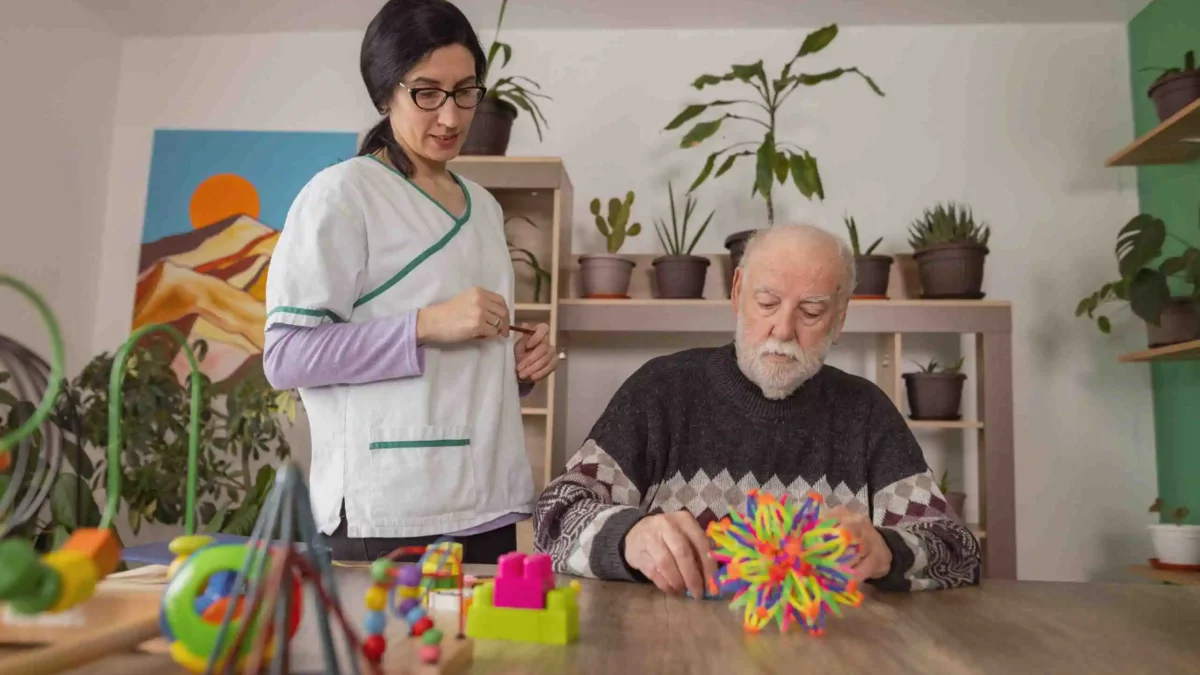
Tech Savvy Seniors: Digital Tools to Enhance Daily Life
May 5, 2025
Art Therapy: Creative Outlets for Emotional Well-Being
July 1, 2025As we age, keeping our minds sharp and active becomes just as important as maintaining physical health. Cognitive decline is a common concern among older adults, but research shows that engaging in regular mental exercises can help enhance cognitive function, delay the onset of dementia, and improve overall brain health. This blog post will explore various effective cognitive exercises designed specifically for seniors to help maintain and even improve mental acuity.
Understanding Cognitive Health in Aging
Cognitive health refers to the ability to think, learn, and remember. It is an integral part of brain health and affects how well an individual can perform all mental processes. For seniors, maintaining cognitive health can mean the difference between a vibrant, independent life and one that requires significant medical and caregiver support. Fortunately, just as muscles get stronger with use, cognitive abilities can be preserved and strengthened through mental workouts.
Cognitive Exercises for Enhancing Brain Function
1. Memory Games:
Memory exercises are perhaps the most well-known tools for boosting cognitive function. Games like matching pairs, recall activities, and even playing cards can enhance short-term memory. Apps and websites like Lumosity or CogniFit offer games designed to improve various cognitive skills, including memory.
2. Puzzles and Brain Teasers:
Engaging in puzzles such as crosswords, jigsaw puzzles, Sudoku, and other brain teasers can help improve problem-solving skills and attention to detail. These activities challenge the brain, keeping it active and engaged.
3. Learning New Skills:
Learning something new is one of the most effective ways to stimulate cognitive function. This could involve acquiring a new language, picking up a musical instrument, or learning to paint. Each of these activities requires the brain to navigate unfamiliar territory, which can improve cognitive agility and encourage neural growth.
4. Reading and Writing:
Regular reading has been shown to improve brain connectivity and increase vocabulary and comprehension skills. Writing, whether it involves keeping a journal, writing stories, or even poetry, helps enhance communication skills and can be a powerful tool for memory retention.
5. Computer and Video Games:
Contrary to popular belief, video games can be beneficial for older adults, especially strategy games, which require critical thinking and planning. Studies suggest that video games can improve problem-solving skills and help to process information more quickly.
6. Cooking New Recipes:
Cooking is a multifaceted task that requires planning, multitasking, and sensory awareness, all of which engage different parts of the brain. Trying new recipes adds the challenge of unfamiliar techniques and ingredients, which provides a healthy cognitive workout.
7. Social Interaction:
Engaging in social activities can stimulate areas of the brain involved in emotional regulation and complex thinking. Regular interaction with friends, family, and new acquaintances encourages active listening, empathy, and dialogue, which are cognitively demanding processes.
8. Physical Exercise:
Physical activity that increases heart rate actually promotes brain health as well. Activities like walking, yoga, or Tai Chi increase blood flow to the brain, which helps to nourish neurons and promote the growth of new neural connections.
9. Meditation and Mindfulness:
Practices like meditation and mindfulness not only reduce stress but also enhance cognitive flexibility and concentration. Regular practice can help improve focus, attention span, and mental clarity.
10. Art and Music Therapy:
Participating in art and music therapies can be particularly stimulating for the brain. These creative activities improve fine motor skills, enhance problem-solving abilities, and can be a significant mood booster.
Building a Routine for Cognitive Health
To reap the most benefits, it’s important to incorporate a variety of cognitive exercises into your weekly routine. Here are some tips for building an effective routine:
- Set aside specific times each day for cognitive activities, similar to scheduling regular workouts.
- Combine different types of exercises to keep the routine engaging and cover various cognitive skills.
- Join clubs or groups that offer structured activities, such as a book club, chess club, or gardening group.
- Use technology to your advantage by exploring apps and online programs designed for cognitive training.
- Challenge yourself regularly by increasing the difficulty of your activities or trying something completely new to keep your brain engaged.
Maintaining cognitive health as we age is crucial for preserving independence and quality of life. By regularly engaging in diverse and challenging cognitive exercises, older adults can enhance mental agility, improve memory, and strengthen problem-solving skills. Just like physical health, cognitive health requires attention and effort. Investing time in brain-stimulating activities can lead to a healthier, more fulfilling future as we age. So, start incorporating these exercises into your daily routine and enjoy the benefits of a sharper, more active mind.

